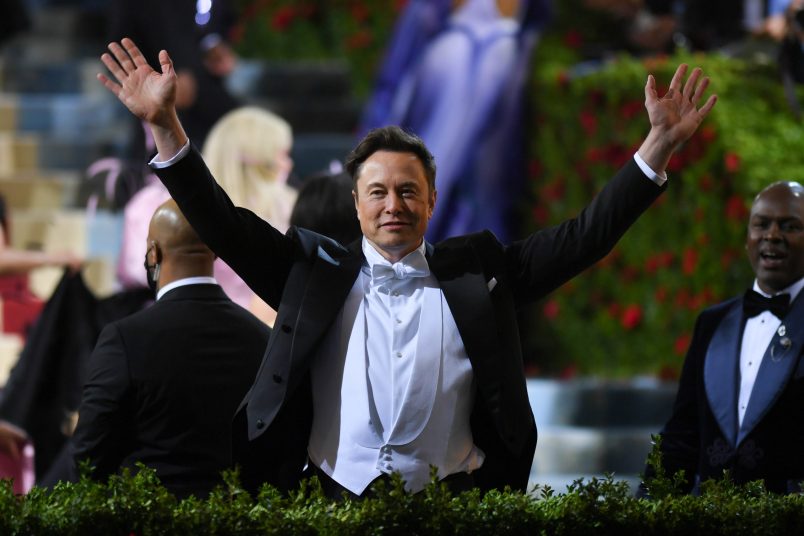Yesterday I noted this odd report that Elon Musk’s weird foray into Russo-Ukraine War peacemaking was preceded by a call with Vladimir Putin. This was revealed in a global intelligence newsletter published by Ian Bremmer. Then Musk denied that any such call had happened. That’s where we got to yesterday. But there’s more from overnight that I want to update you on.
The short version is that it seems pretty clear that Musk’s denial is a lie. And the original tweets themselves have a variety of references that seem like they come from a Russian nationalist or someone very familiar with the set of post-Soviet grievances which are the mother’s milk of Putin’s political world. (They refer to “Khrushchev’s Mistake” and the conquest of Crimea in 1783.)
Here’s the somewhat longer version.
Since yesterday, Bremmer repeated his account, said that it was a conversation he had with Musk and that Musk had claimed he’d had this conversation with Putin. There were other details, like Putin hinting he might end up having to shoot down some of Musk’s StarLink satellites — which certainly could have focused Musk’s attention.
Basically it’s Musk’s word against Bremmer’s. But here’s the thing. Bremmer is an international relations professor who has run a very high-dollar global economic and security newsletter/consultancy for like 25 years. This isn’t a Substack. It’s not something you pay $5.99 a month for. This is a high-dollar operation that governments and big corporations pay for. I’m not terribly familiar with Bremmer. But the idea that he would endanger a highly lucrative operation like that by fabricating such a conversation seems very implausible to me. The idea that Musk would simply lie when made to look like a fool on a global stage seems not at all implausible.
Of course there’s a third option: Musk lied to Bremmer or greatly embellished his story. Perhaps Musk spoke to one of Putin’s deputies. Who knows? But it seems overwhelmingly likely that Musk did give an account to Bremmer along the lines Bremmer reported. (More details about the newsletter edition itself were surfaced by reporter Julia Ioffe in her newsletter for the new online publication Puck.)
I know for some of you Musk is just some weirdo tech billionaire who’s buying or not buying Twitter and not really part of any serious discussion of politics. But I don’t think that’s quite right. He’s a very consequential figure, if also an at least partly malevolent and thoroughly ridiculous one. Right around the time he started floating his own Ukraine peace plan he did something similar for the other side of the globe. He went on Twitter and suggested that Taiwan needed to be forcibly unified with China through the creation of a SAR on the model of Hong Kong and Macau under the “one country, two systems” framework. Needless to say, people don’t put much stock in that system anymore since the recent crackdown in Hong Kong. But how is it that Musk suddenly got so interested in trying to settle these two contentious and dangerous disputes? It is impossible to ignore that just as this is happening he appears to be on the brink of a forced purchase of Twitter for more than $40 billion and that many of the banks which were eager to fund the deal last spring are now much less interested in doing so. Where and from whom is he trying to line up money now?
These are admittedly speculative suggestions. But it’s hard to capture just how weird Musk’s sudden foray into pro-PRC and pro-Russian Twitter diplomacy is. More generally, these antics are part of the larger story of the global struggle between authoritarianism and civic democracy and key elements of the Silicon Valley tech lord class have enlisted in, or are at least highly attracted to, the wrong side.






